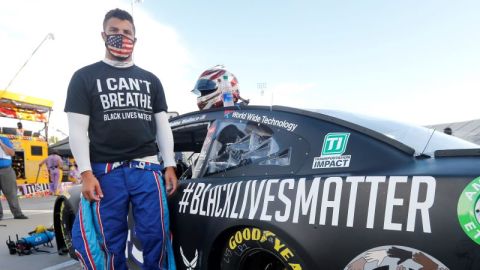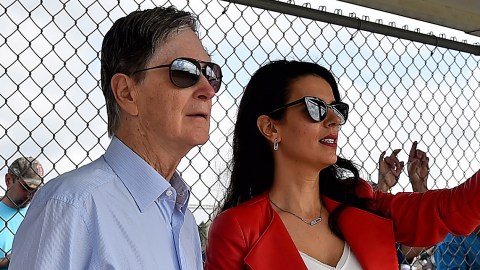 On a practical level, there is really no problem with the NBA allowing the sale of the Sacramento Kings to an ownership group that will move the team to Seattle as soon as next season. The “new” Sonics would restore the NBA’s footprint in the largest U.S. media market without a professional basketball franchise and puts the organization in the hands of competent owners with the financial and emotional motivation to support the team.
On a practical level, there is really no problem with the NBA allowing the sale of the Sacramento Kings to an ownership group that will move the team to Seattle as soon as next season. The “new” Sonics would restore the NBA’s footprint in the largest U.S. media market without a professional basketball franchise and puts the organization in the hands of competent owners with the financial and emotional motivation to support the team.
Spare us the tripe about righting wrongs done to the city of Seattle, though, and all the nonsense about David Stern‘s guilt over his complicit role in Clay Bennett swindling Seattleites out of their team. This is not a romantic story about NBA owners, after much thought and reflection, being overtaken by their lofty ideals. This is a cold, hard business decision by the rest of the league’s owners based on media value and the desire to get a dysfunctional family out of their hair.
The Kings’ impending sale comes down to two numbers: 3.5 million and 1.9 million.
Those are the metropolitan population estimates for Seattle and Sacramento, respectively. When two areas have shown the capacity to support a sports franchise, and one happens to be more than 50 percent larger than the other, the league is going to favor the bigger one in virtually every case. The Kings’ move is a numbers game, pure and simple, and the smart guys running the league know that 3.5 million is more than 1.9 million.
“But wait!” you might be saying. “Oklahoma City has less than a third of the population of Seattle, and you just wrote that Stern did not try to stop the Sonics from relocating in 2008. So size does not matter.”
If this was your response, congratulations on buying the league’s inevitable rebuttal hook, line and sinker. After all, if that relocation was not purely about market size, this relocation cannot be either, can it?
Of course it can. The Seattle and Sacramento situations were entirely different, connected only by ownership groups that made it next to impossible for their hometown fan bases to support their teams toward the end. In Seattle, the Sonics move was spurred by owners who intended to move the team all along and a municipal government that dismissed the team’s overtures for public money to build a new arena. In Sacramento, the bumbling Maloofs tried to hold onto the Kings long after it was clear the family no longer had the financial wherewithal to support the team. The local government, meanwhile, worked overtime to offer the Maloofs a fair arena deal and an even fairer deal to sell the team outright.
The fact was, once Bennett bought the Sonics, the franchise was never going to be viable in Seattle because he did not want it to be, no matter the population disparity. For all the Maloofs’ ineptitude, the Kings still have not gotten to that point. Last year, in the midst of the Maloofs’ aggressive attempts to move to Anaheim, Calif., the Kings still had a positive operating income, according to Forbes, and were valued higher than four other teams in larger markets. Whereas the Maloofs, like Bennett with the Sonics, reportedly desired to move the team, Sacramento has two things Seattle did not: new investors willing to purchase the team in order to keep it from moving, and political leadership favorable to a new arena deal.
Again, business is business, and the NBA reserves its rights to sell, swap and relocate franchises at its owners’ whims. The Kings deal therefore would not be so disappointing — except for Kings fans, who would be disappointed no matter the circumstances — if the NBA were not just a year removed from a lockout in which the viability of smaller-market franchises was a major talking point. In the case of the Sonics, the city was simply the victim of a series of dirty deeds. In the case of the Kings, the league made a business decision that ran counter to its stated position less than 13 months ago.
During the lockout, NBA owners demanded a greater portion of basketball-related income, a harsher luxury tax and more restrictions on individual players salaries. The express purpose of these conditions was to help the 22 teams that were allegedly losing money get into the black. Small-market fans were told that the lockout was for them, to keep it feasible for their teams to compete both on and off the court with New York, Los Angeles and Dallas, which did not need an extra three percent of BRI to make money.
Then, in the first opportunity to make good on that promise to a mid-size market, the NBA went and showed that was all a bunch of baloney. There was no moral aspect to the lockout, just as there is no moral aspect to giving a team back to Seattle. That does not mean, in either case, that the league was in the wrong — just blatantly, laughably disingenuous.
Have a question for Ben Watanabe? Send it to him via Twitter at @BenjeeBallgame or send it here.



